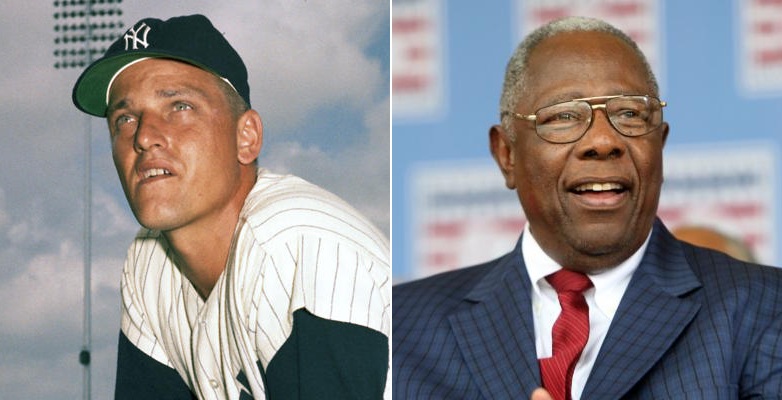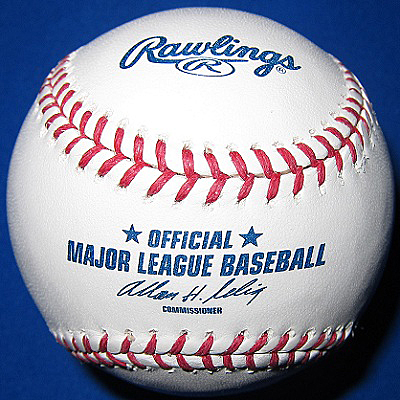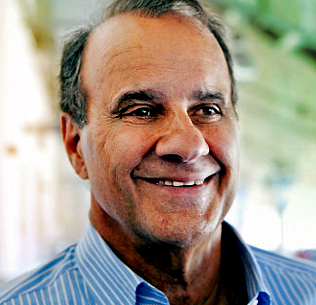As most baseball fans know, Major League Baseball Commissioner Allan H. “Bud” Selig has already indicated that he will step down from his position when his current contract expires at the conclusion of the 2014 season. And like the man or not, he has had to make some of the most difficult (if not controversial) decisions, and brought about some of the most significant changes (some popular and some not so much) in the 130-year history of the game. Selig has also made several non-decisions, for which he received harsh criticism (and the nickname “Bud Light”). But when you closely examine his entire twenty years in office (thus far), it would be unfair to say that he hasn’t done a pretty good job or that he didn’t always have the best interest of baseball in his heart.

Bud Selig will begin his 21st season as MLB Commissioner in 2013. He plans to step down at the end of the 2014 season. (Photo courtesy of mlbreports.com)
Selig was born on July 30, 1934 in Milwaukee Wisconsin. He graduated from the University of Wisconsin-Madison in 1956 with a bachelor’s degree in American history and political science. Selig served two years in the Army, after which he went to work for his father, who owned a car leasing business in Milwaukee. Even to this day, Selig is still involved in the auto industry serving as president of the Selig Executive Lease Company.
Like many kids, Selig’s interest in baseball actually came from his mother rather than his father. An immigrant from Ukraine, Marie Selig attended college, a rare accomplishment for a woman in the early 20th century, and became a school teacher. When Selig was three years old, Marie began taking him and his older brother Jerry to Borchert Field to watch the Milwaukee Brewers, then a minor league affiliate for the Boston Braves.
In 1953, the Boston Braves relocated to Milwaukee becoming the Milwaukee Braves. So excited that the major league Braves had come to his home town, Selig invested heavily into the team and eventually became their largest public stockholder. Selig was so devastated when he learned that the Braves were moving to Atlanta in 1965 that he divested every penny of his stock in the Braves.
In 1970, Selig purchased the bankrupt Seattle Pilots franchise and moved the (then) American League team to his hometown and officially renamed them the Milwaukee Brewers after his favorite childhood minor league team. During his tenure as club president, the Brewers made it to the post-season in 1981 and the World Series in 1982. Under Selig’s watch, the Brewers also won seven Organization of the Year awards, in spite of posting one of the worst winning percentages in the history of the MLB during that 10-year period. He was also among the team owners involved in the collusion civil lawsuit in 1985–1987, which resulted in a settlement of $280 million in damages to the players’ union.
Amidst extreme controversy in 1992, then MLB Commissioner Faye Vincent resigned from office after a vote of no confidence by MLB owners. At the time, Bud Selig was the chairman of the Executive Council of Major League Baseball and, as such, he became de facto acting commissioner. Upon becoming interim commissioner, Selig transferred his ownership interest in the Brewers over to his daughter Wendy Selig-Prieb in order to avoid any possible conflicts of interest.
Selig’s first significant act as the interim commissioner was the implementation of the Wild Card system, which was initially met with harsh criticism from many but soon became quite popular. He followed this up with the implementation of interleague play – which hasn’t been nearly as popular, especially among baseball purists. But just like the designated hitter rule in the American League, interleague play isn’t going away any time soon.
Selig remained acting commissioner from 1992 through 1998, during which time he had to deal with several extremely difficult situations – most notably the players strike of 1994-1995 which cause cancellation of the World Series for the first time since 1904.
The strike of 94-95 took its toll on the game, as many fans boycotted baseball all together once the strike was settled and play resumed. Attendance was down significantly in ballparks from coast to coast.
But then something strange happened. All of a sudden and out of nowhere, hitters were hitting the ball harder and farther and pitchers were throwing the ball faster and nastier. Before you knew it, Roger Maris’ single-season home run record, the most sacred record in baseball, was being challenged and eventually surpassed – and not just by one guy, but by two. In 1998, the race was on between Cardinals slugger Mark McGwire and Cubs slugger Sammy Sosa. So exciting was this race that fans were returning to their local ball parks in droves. Baseball was back and flourishing like never before and was as exciting as it had ever been in its entire history – and Bud Selig was loving every minute (and dollar) of it.
The excitement continued in 2001 when Giants slugger Barry Bonds eclipsed McGwire’s two-year-old record of 70 home runs when he hit 73.
…and then the baseball world came crashing down.
The whole thing had been a façade, a fake, a fraud. McGwire, Sosa and Bonds had cheated. They and countless other MLB players had used steroids and other performance enhancing drugs to defile the legitimate records of Roger Maris and Hank Aaron – and Bud Selig was right in the middle of it all.

Roger Maris and Henry Aaron are the two biggest victims of the Steroid Era.
(Photo credit – AP and Bill Greenblatt)
Although it cannot and will not ever be proven that Selig knew that players were juicing, there isn’t a single baseball fan alive who honestly believes that he didn’t. How could he not. And when the Senate Investigation Hearings began and baseball itself was put on trial, it became blatantly obvious that not only were PEDs being used in the game, but their use was widespread and rampant.
With his back to the wall, Selig had no choice but to fight the toughest battle of his life – he was suddenly called upon to clean up the game. But unfortunately it wasn’t just Selig against the cheaters, it was also Selig again the MLB players’ union, and that union wasn’t going to give an inch.
Under intense pressure from fans and with the shocking revelations uncovered during the Mitchell investigation and the former senator’s extremely thorough and detailed report, agreements were reached between MLB and the players’ union to begin serious drug testing.
Selig had won the battle but not the war.
Even though improved testing measures began catching cheaters, new and more cheaters filled in right behind them. It was like digging in the sand. As quickly as PEDs could be detected, new designer PEDs were developed; and then new testing measures were developed to detect those new PEDs. The problem was, Bud Selig was always one step behind the cheaters because every time a new and more effective testing measure was developed, he had to battle the players’ union to allow the new testing measures to be implemented. The perception among fans was that the players’ union was protecting the cheaters, not the honest players.
Under tremendous public pressure, the players’ union ultimately agreed to stiffer penalties for those testing positive for PEDs and to improved testing measures; and by all appearances, the so-called Steroid Era had finally come to an end (or has it?).
Having served as commissioner of baseball for almost two decades and with his 78th birthday approaching, Selig announced his intention to retire at the conclusion of the 2012 season; but in a show of support and unity, 29 of the 30 MLB team owners voted in favor of extending Selig’s term for two additional years through the 2014 season. So touched by the faith and confidence that the owners had in him, Selig agreed to stay on for two more years.
Selig has indicated that he will definitely step down when the 2014 season ends. When he does, he will be 80 years old and will have served as commissioner for 22 years – 22 years that saw two extended work stoppages (and a couple short ones), the addition of (now) two Wild Card teams to the post season, the creation of interleague play, awarding the winning league of the All-Star Game home field advantage for the World Series, the implementation of limited instant replay (which will probably be expanded before Selig leaves office), and the implementation of random in-season drug testing that now includes blood tests. It also saw baseball’s darkest hour with widespread PED use and, as of this writing, there are still PED users in the game today and most likely always will be.
While there will always be those who are critical of Bud Selig and some of the decisions and non-decisions he has made during his career, baseball is financially healthier today than it has ever been; certainly well beyond anyone’s wildest dreams or expectations.

Whose name will appear on every Rawlings Official Major League Baseball beginning in 2015?
(Photo credit – Ron Cervenka)
So who will replace Bud Selig when he steps down after the 2014 World Series? Will it be Joe Torre (my guess) or one of Selig’s other current executive vice presidents? Or will it be Stan Kasten? (I bet you never even considered him, did you?). Or will it be someone who we are completely unfamiliar with?
Who do you think it might be?




 February 11th, 2013 at 6:07 am
February 11th, 2013 at 6:07 am  by Ron Cervenka
by Ron Cervenka 
 Posted in
Posted in 

@Think_BlueLA Stan Kasten isn’t stuffy enuff to be commissioner. Joe Torre on the other hand…
You’re right. Torre probably is the guy. As for PED’s; one thing that will never change in the game is players trying to get the edge in one form or another.
I still believe that if the risk outweighed the reward (i.e. stiffer penalties, contract nullification, etc,) instead of vice versa, it would reduce the number of PED occurrences; but that one isn’t on Bud Selig or his successor, that one sits squarely in the lap of the players’ union, and they will never go for it (IMHO).
As far as Selig is concerned, I know he has been in a thankless job during a crucial period of baseball history, but I’m not much of a fan. Installed into the Commissioner position because ownership wasn’t happy with Fay Vincent, who I actually thought would have been a good Commissioner had he been allowed to do his job. We can pin several problems at the feet of Selig that should have been handled better. 1) the 1994 strike and cancellation of the World Series. never should have happened. 2) turning a blind eye to the steroid problem because in the short turn, fans were returning because of the long ball. Drug policies were only put in place when the public and Congress forced his hand. 3) Ramrodding throught the McCourt ownership group when the highly leveraged deal was completely against all ownership rules at the time.
Number three is what really upsets me about Selig because he nixed a done deal Dan Evans and Kim Ng had negotiated with Vlad Guerrero at the time. He disallowed the new owner to take on that payroll and essentially forced a small market owner on the second largest market in the game.
I’m not a fan of the playoff expansion and the diluted playoffs with teams from poor to mediocre divisions getting in to post season play. That’s all on Selig’s watch. I never could get away from the fact that Selig was an owner “first” and commisioner “second.” The man was knee deep in the mid 80’s collusion. To this day, more than 20 years after the fact, I still see the guy as an owner that happens to be appointed commissioner.
Some fair points to be certain, Evan. There are a lot of items we’d like to have seen handled differently. I’m not sure if having a commissioner who was not affiliated with a team would have made much difference. Guess we’ll never know. And while not everyone has been a fan of the expanded postseason, you have to admit, it’s definitely helped the fan base by keeping more of those fans involved all the way to seasons’ end.
If you had told me you were doing an article on Bud Selig I would have guessed he was going to get burned. A good perspective – pros and cons.
It must be a terribly difficult job being squeezed in among owners, MLBPA, and fans. Getting agreement between the owners and player’s association must keep Bud awake at night. I think the health of the game financially, and weathering the strikes without major lingering issues with fans has been his legacy.
I also agree that more instant replay would be something he would like to accomplish although publicly he seems to speak against it.
A non call would be removing the MVP from Ryan Braun, for which he was criticized. I expect he simply didn’t want to set a precedent with which future commissioners may have to deal.
HGH clean up is also probably high on his agenda but time now dictates against it for the commissioner.
Joe Torre will be 74 at the end of Bud’s term. I haven’t researched the age of commissioners but Torre would almost have to be an interim commissioner, maybe with a lone task – HGH.
Good point, Harold, with regard to Torre’s age. Selig is 78 now. One guy whom I know would be a damn good commissioner is George Brett. He’s got the right mix of player/front office, combined with business acumen. He’d get it right… that’s for sure.
Torre seems to be the most qualified and most likely the to suceed Selig.
I would guess Torre would be the next commissioner.